[VIDEOs] – The Lyle Howe Legal Odyssey
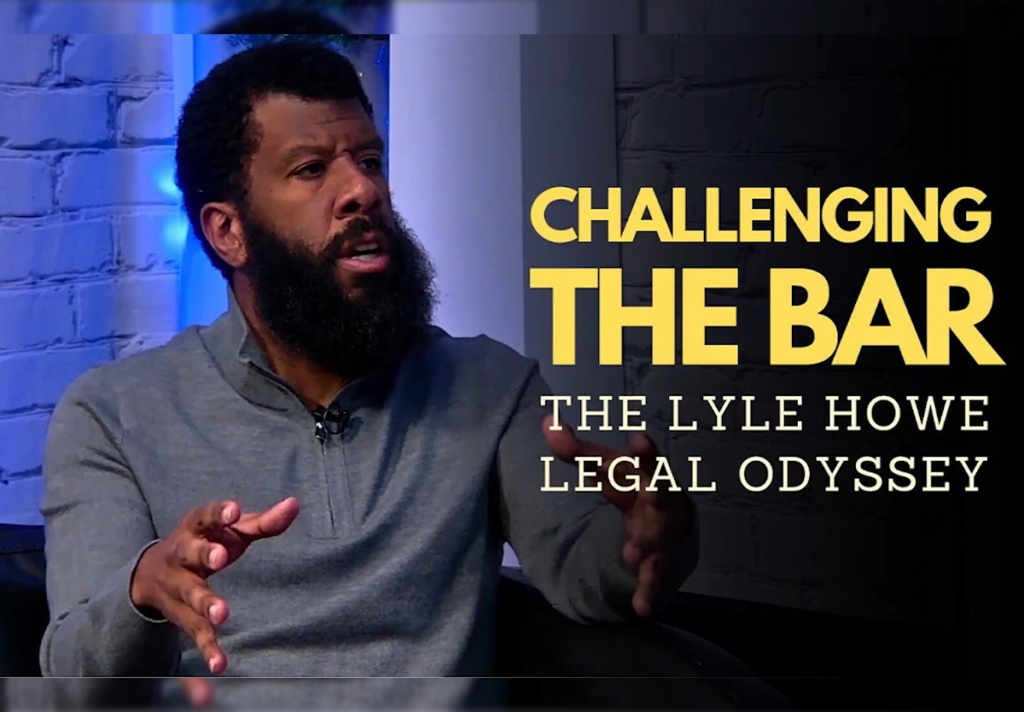
Former Halifax lawyer Lyle Howe says he was investigated by the Nova Scotia Barrister’s Society in 2011 by way of a practice review. Then, in 2014 Howe was convicted of sexual assault before then having that conviction overturned. Howe was initially suspended following the criminal conviction but went back to practicing law once the conviction was overturned. It was then, Howe says, that the Society laid their own set of serious charges against him and Howe was suspended a second time. Howe attempted to sue the society over that decision, but his lawsuit was initially dismissed. Recently, the Nova Scotia Court of Appeal overturned that decision, meaning Howe can proceed with his lawsuit. Howe said that the legal professionals who he said acted against him in bad faith will now be compelled to testify under oath by way of the discovery process in his lawsuit. In an interview with Community Update, Howe says it was the Society’s intention to collect as much evidence as they could to use it against him. Howe, who is Black, says he has evidence and transcripts that demonstrate he was singled out and targeted by former members of the Nova Scotia Barrister’s Society and by current members of the legal community because of his race. When giving examples, Howe says he was accused of double booking himself in court, a something he says is a common and accepted practice among all lawyers in the local legal community. “I’m literally the only person that’s been charged with it in Nova Scotia.” Speaking with Community Update, Howe also talked about the nature of systemic racism in the legal and justice system in Nova Scotia, he names specific names of people he’s dealt with who, through his experience, he feels are guilty of upholding the system of racism and white supremacy, and he talked about some things he feels need to happen to build on improvements he feels are in fact taking place.
Justice Talks – Thurs., April 11, 2024 – 12pm-4:30pm
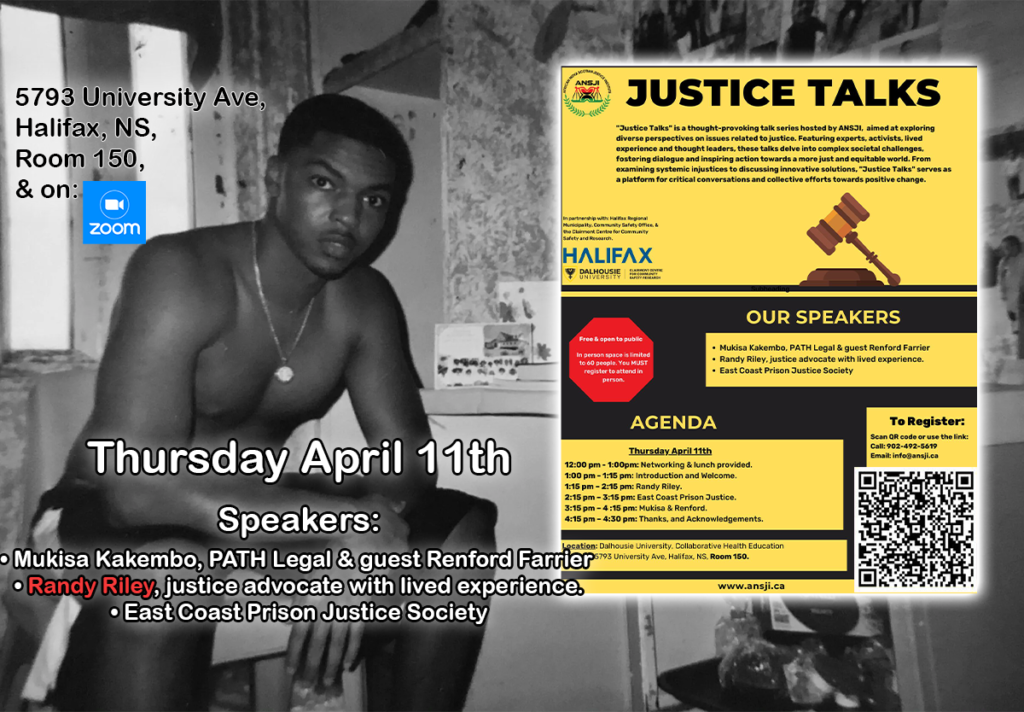
Please see the attached poster for Justice Talks, a talk series that will be hosted by ANSJI that is aimed at exploring diverse perspectives on issues related to justice. This first session will feature:
– Mukisa Kakembo, PATH Legal & Guest Renford Farrier
– Randy Riley, Justice advocate with lived experience
– East Coast Prison Justice Society
This will take place on April 11th from 12:00-4:30pm, please see the poster below for additional details
DeRico Symonds: Legal Strategist talks Black Justice Strategy [VIDEO]
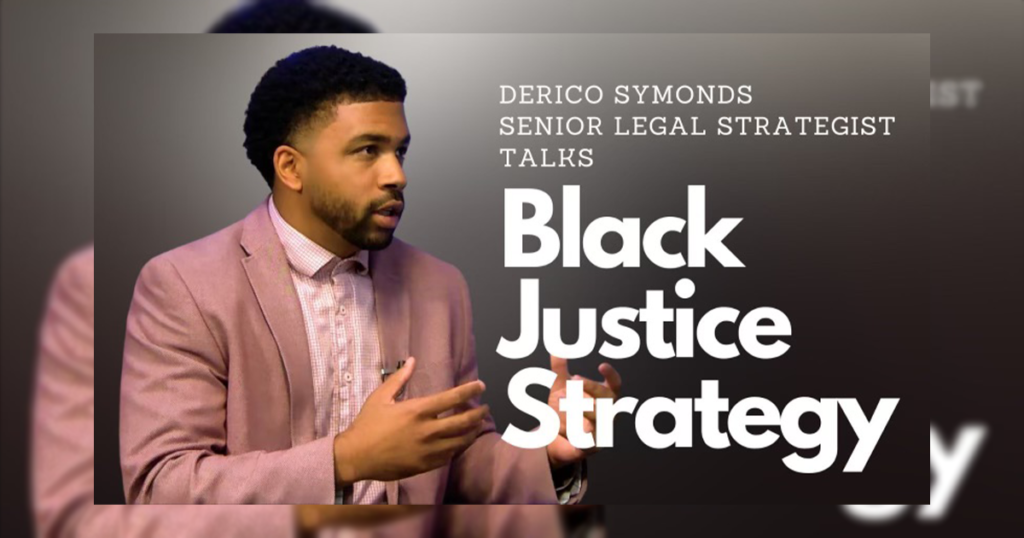
Derico Symonds, a prominent activist and advocate dedicated to advancing the cause of Black and African Nova Scotian communities in Halifax. With years of experience in the provincial government’s Department of Justice, Symonds has now taken on a new role as the Senior Justice Strategist for the African Nova Scotian Justice Institute.
In his latest endeavor, Symonds is spearheading a series of community engagement sessions across the province, aimed at developing a comprehensive Black Justice Strategy.
(Sept 12-28) Black Justice Strategy Community Engagement Sessions
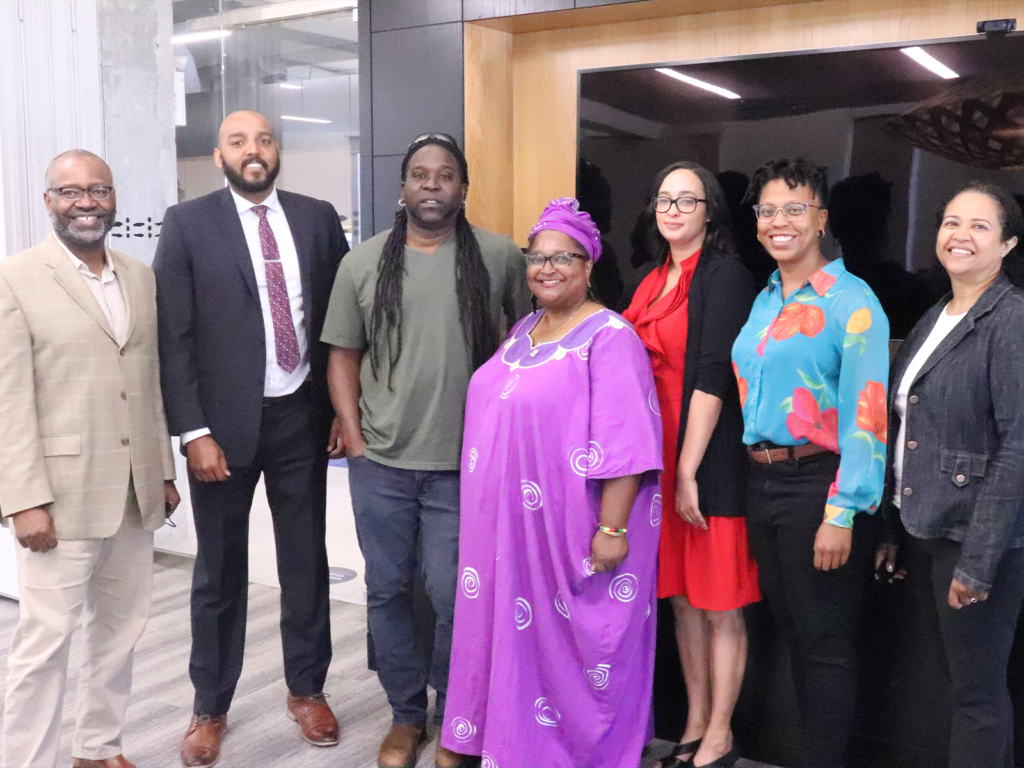
Canada’s Black Justice Strategy Community Engagement Sessions – Hosted By ANSJI The African Nova Scotian Justice Institute is leading public engagement sessions across Nova Scotia to inform the development of […]
Open Letter – Anti-Black Racism at Public Prosecution Service (July 2023)
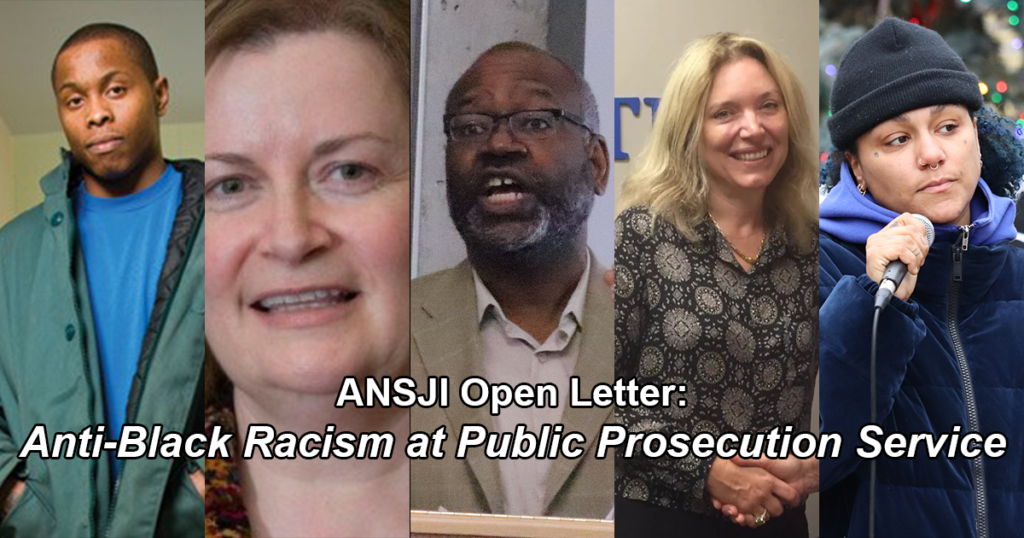
“The African Nova Scotian Justice Institute has serious concerns about systemic racism at the Public Prosecution Service. Our recent correspondence with government officials and PPS leadership have not left us with great confidence that our concerns are being heard and addressed. We are releasing the most recent correspondence to the public to initiate broader discussions on this problem to better educate all Nova Scotians about these concerns. “
Justice Institute alleges systemic racism at Nova Scotia’s Crown prosecutor’s office
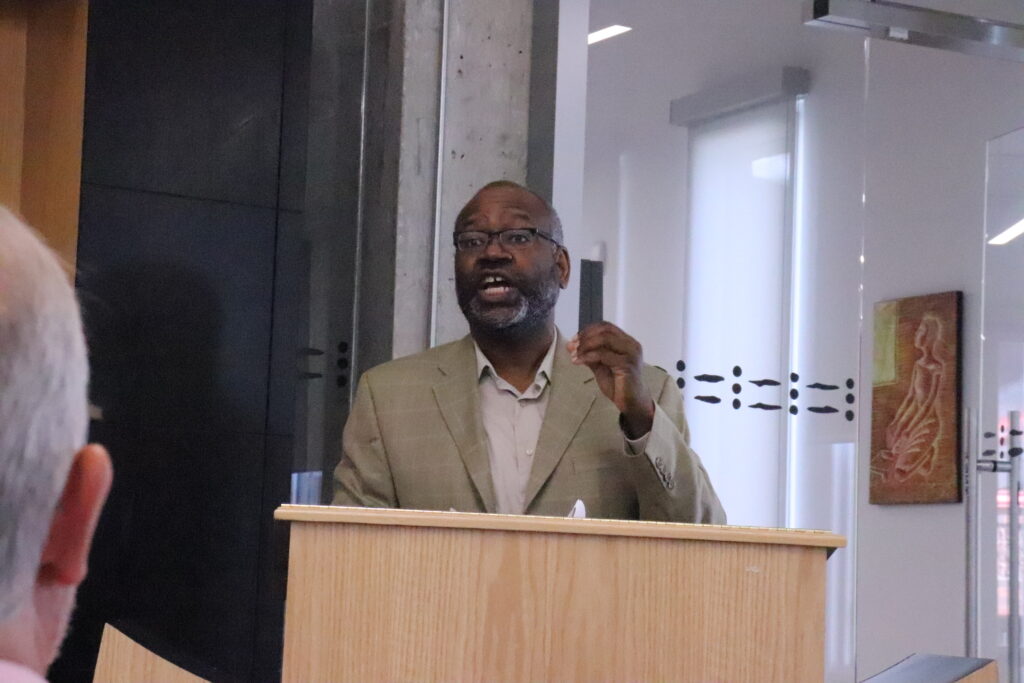
Systemic racism plagues the Crown prosecutor’s office in Nova Scotia, and the office’s efforts to address the problem have only made the situation worse, say critics.
Robert Wright is the executive director of the African Nova Scotian Justice Institute, an organization made up of Black lawyers and legal experts whose mandate is to support Black Nova Scotians in contact with the law and to address racism and overrepresentation of Black people in the criminal justice system.
In an open letter on behalf of the Justice Institute and in the interview with the Examiner, Wright said the institute’s correspondence with government officials and leadership at the Crown prosecutor’s office, formally known as the Public Prosecution Service (PPS), leaves them doubtful their concerns about systemic racism at the PPS are being heard and addressed.
African Nova Scotian Justice Institute to continue ‘invisible’ legal work with renewed funding
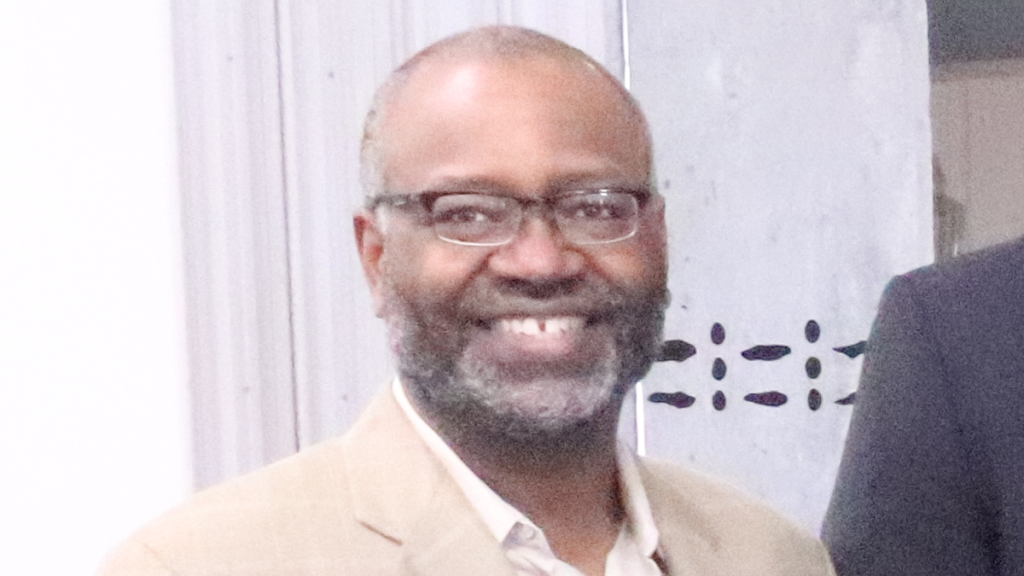
The man in charge of the African Nova Scotian Justice Institute says its legal work is largely “invisible,” but with renewed funding, it’s increasing its workload.
“Our role in shaping the law, and improving the law, and improving how the criminal justice system responds to and relates to Black people has already been substantial,” interim acting director Robert Wright said.
Social work student collecting data about Black mothers’ experiences with child welfare system

A social work student in New Brunswick wants to interview Black mothers in Nova Scotia who’ve been involved with child welfare servces and the Department of Community Services for child neglect within the past five years.
Renise Robichaud is working on her masters thesis at Université de Moncton. She said Black mothers are overrepresented in the child welfare system and the main issue is the Department of Community Services relies heavily on people reporting parents to the offices of child welfare, which accounts for the majority of the cases they receive.
Work at African Nova Scotian Justice Institute ‘something to celebrate’
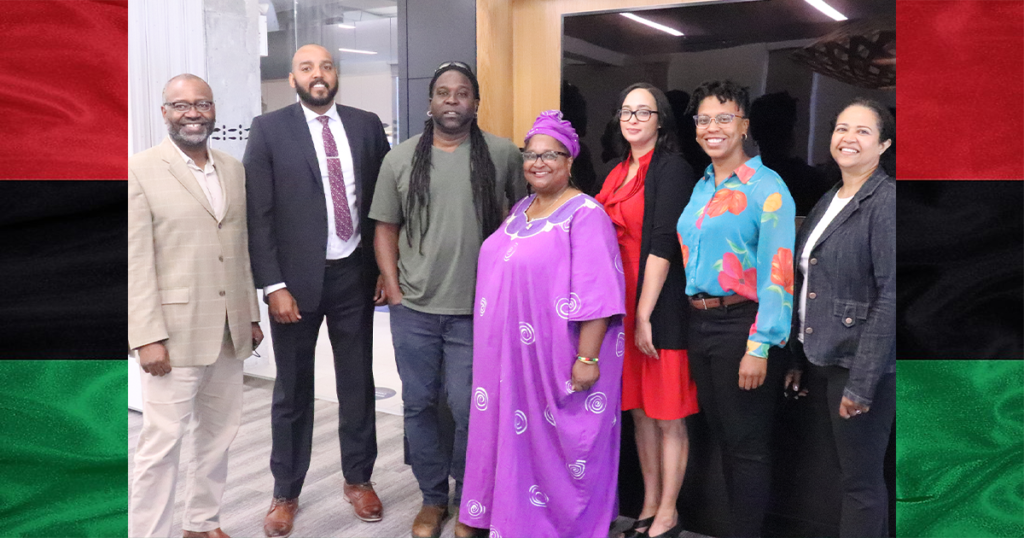
The African Nova Scotian Justice Institute held a meet and greet Tuesday with representatives from a number of government departments and the African Nova Scotian Decade for People of African Descent Coalition (ANSDPAD) to talk about the next steps in the institute’s work.
No More Excuses: Cecil Boutilier is trying to right his troubled past despite COVID and an overbearing parole system
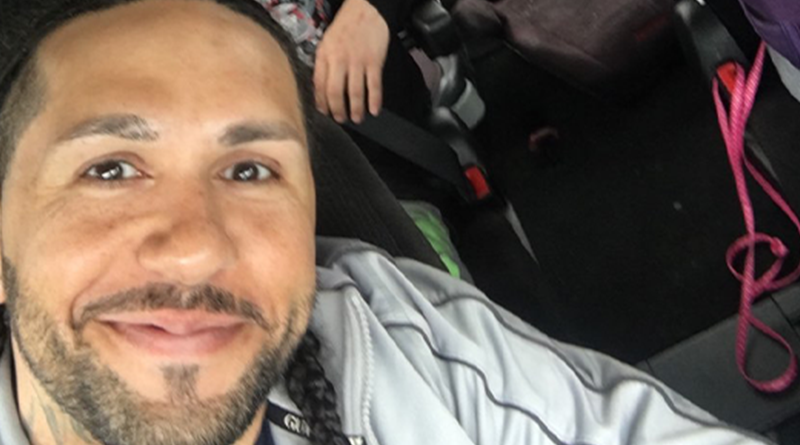
Boutilier was on a hunger strike to draw attention to COVID rules, until he tested positive for the virus last week. Now, he says he’s advocating against obstacles put in his way of running his business.
